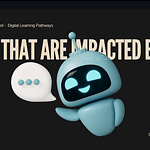The Myth of “Great Communication Skills”
Nearly everyone puts “communication skills” on their resume. It’s one of those universal claims—like being a “team player” or “detail-oriented.” But what does communication really mean?
Most people are pretty good at one part of communication: expressing themselves. We know how to be transparent, share our thoughts, and explain our feelings about certain things. But communication is more than just talking or being honest.
The Missing Pieces: Listening and Comprehension
Here’s where things get tricky. True communication is a two-way street. It’s not just about expressing yourself—it’s about listening and actually understanding the other person.
And let’s be real: that’s where a lot of us struggle.
Listening and comprehension are skills that take intention and practice. It’s one thing to hear someone’s words; it’s another to really absorb and understand their perspective, especially when emotions are running high.
The Real Challenge: Conflict Resolution
But there’s a deeper layer that often gets overlooked. After a recent conversation with my best friend, I realized the soft skill we all need to grow isn’t just communication or even listening—it’s conflict resolution.
Think about it:
How do you handle conflict at work when you’re triggered, exhausted, or trying to focus on something else?
What do you do when you’re in a tough situation and the other person doesn’t have those skills either?
Conflict resolution is hard. Facilitators and leaders often get formal training in it—or, like me, learn by being thrown into the fire. But most people don’t, and it shows.
Why Conflict Resolution Matters in the Workplace
Here’s what usually happens:
When an issue arises at work, people take it personally. Defenses go up. It becomes about protecting your honor or your reputation, sometimes at all costs.
But real conflict resolution means stepping back. It means recognizing that the problem is bigger than you or the other person—it’s an issue you both need to tackle together.
It’s like a marriage: it’s not one partner versus the other, but both of you against the problem.
Building the Skill We All Need
If more people learned true conflict resolution, workplaces would be healthier and more productive. It would save a lot of trouble, misunderstandings, and hurt feelings.
So next time you think about your “communication skills,” ask yourself:
Can I listen and really comprehend what others are saying?
Can I navigate conflict without taking it personally?
Am I willing to work with others to solve the problem, not just defend my position?
These are the skills that set great communicators—and great colleagues—apart.
Let’s start teaching and practicing real conflict resolution. It’s the soft skill everyone claims, but few truly master.












Share this post